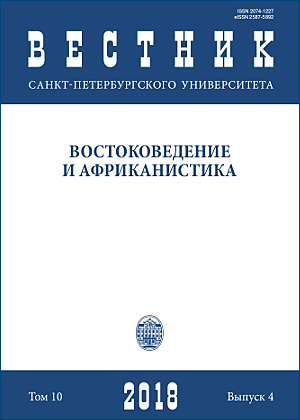North Mongolian princes and Qing taxes (XVIII — first half XIX cent.)
DOI:
https://doi.org/10.21638/spbu13.2018.403Abstract
The legislation of the Qing Empire, designed to govern Mongolia, contained a number of tax laws. Among those, of special importance were the regulations, which princes-rulers of banners (khoshuns) were obliged to be guided by when imposing taxes and duties upon the subordinated population. With the help of these regulations, the Imperial authorities sought to determine what proportion of the total fiscal revenues collected from the inhabitants of the Mongolian steppes could be used by native aristocrats as remuneration for the performance of their administrative service duties, and which could not, because it was an Imperial domain. The purpose of the current paper is to investigate the content and to monitor the practical application of the mentioned legislative norms in Northern Mongolia in the 18th — first half of the 19th centuries. It has been found that Mongolian and Chinese sources contain numerous pieces of information about the constant tendency to neglect the norms of the Qing tax legislation, which was typical for the North Mongolian princes and officials. The reasons for this may be rooted in the transformation of the social and legal system that occurred in Mongolia in the 18th — first half of the 19th centuries due to the influence of the Qing Empire. At the same time, it is unlikely that the Supreme Qing authorities possessed many opportunities to obtain objective information about the true scale of the fiscal arbitrariness by Mongolian princes and to suppress their massive violations of tax legislation.
Keywords:
Qing Empire, Northern Mongolia, the law, the rules of imposition of taxes and duties, the rulers of banners (khoshuns) and officials subordinate to them, violations of fiscal rules
Downloads
References
Downloads
Published
How to Cite
Issue
Section
License
Articles of "Vestnik of Saint Petersburg University. Asian and African Studies" are open access distributed under the terms of the License Agreement with Saint Petersburg State University, which permits to the authors unrestricted distribution and self-archiving free of charge.





